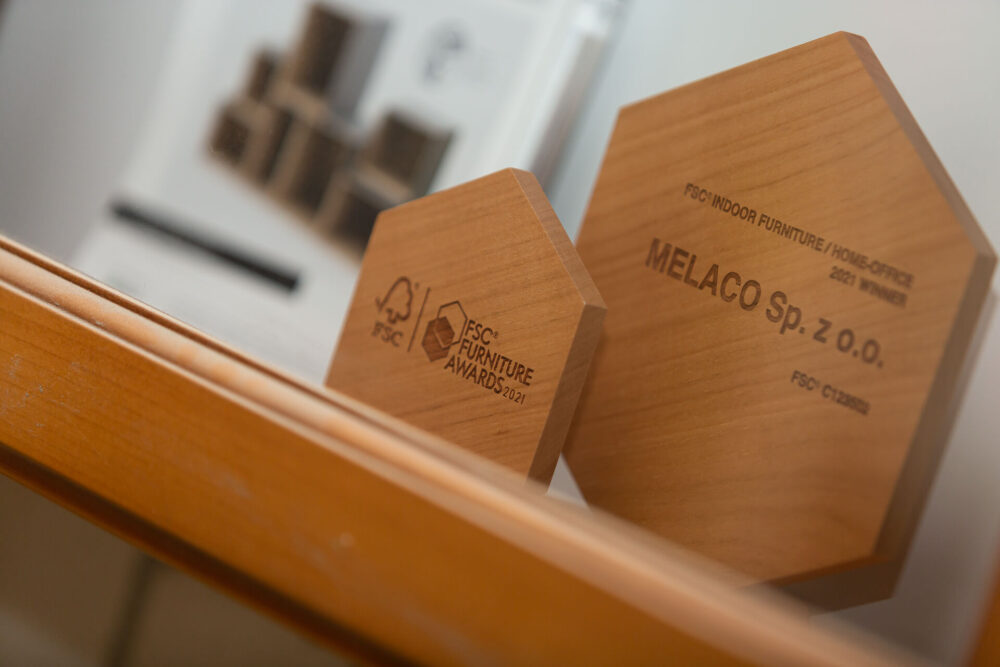This website uses cookies so that we can provide you with the best user experience possible. Cookie information is stored in your browser and performs functions such as recognising you when you return to our website and helping our team to understand which sections of the website you find most interesting and useful.
ESG factors as a way to increase competitiveness
The PKO BP survey was conducted in November and December 2022 on a group of 16 companies from the furniture industry that is the bank’s clients. These companies operate in the sector of medium and large enterprises, i.e. they employ over 50 people and are exposed to foreign markets, especially Western European markets.
According to the assumptions of the report, in the face of rising production costs, maintaining a good quality-price ratio will be an increasing challenge for Polish producers. The authors of the report, therefore, pose questions about the non-price advantage, and more specifically about ESG (environmental, social, corporate governance) factors, i.e. sustainable production, good working conditions and social responsibility. With the main focus on environmental issues, such as energy and emissions, materials and raw materials and the life cycle of products. How do representatives of the sector view them? Here are the main conclusions of the report.
The natural environment as a development priority
Nearly 90% of the furniture companies covered by the survey declared that the implementation of activities limiting the negative impact on the environment is one of their development priorities. At the same time, the authors of the report emphasize that the Polish furniture industry is not one of the industries that are highly harmful to the environment. The awareness of companies in this area is high and they are primarily focused on reducing energy consumption, investing in their own renewable energy sources and optimizing the consumption of raw materials and production materials.
The situation is similar when it comes to energy consumption. In this field, the furniture industry can also boast of good results. According to PKO BP’s calculations, the average electricity consumption was 20.9 MWh/PLN million of production – this is less than the average for industrial processing, which was 38.7 MWh/PLN million (Central Statistical Office data for 2020). According to NAPE S.A. data on average, 60% of the energy used in the furniture industry is electricity, which powers production, ventilation and lighting machines. 40% is thermal energy used to heat rooms or dry rooms. Furniture production is characterized by a high degree of production waste management, which can be used both for further processing (e.g. in the production of wood-based panels or accessories) and for energy production.
Among the pro-ecological trends, the generation of energy from production waste (biomass) is becoming more and more visible. More than half of the surveyed companies declared planned investments in this area. Nearly half of the plants already recover energy from production processes and plan to increase the scale of this activity. At the same time, as many as 44% of enterprises admit that they do not have such opportunities and do not plan to invest in energy recovery. As many as 69% of respondents plan to modernize their production lines with more energy-efficient ones.
Sustainable development for the environment – how we operate at MELACO
We are also familiar with environmental issues – for over a decade we have been striving to reduce the negative impact of production on the natural environment. To this end, we have made several important decisions that allow us to implement our sustainable development strategy. For example:
- Introduction to the production of boards marked with the FSC® certificate, which guarantees verification of the source of origin of wooden products. Thanks to this, we can be sure that we actively limit the degradation of forest resources, protect endangered species from extinction and reduce the negative impact of human activities on climate change.
- Based on an agreement with RENOLIT, our renowned supplier of PP, PVC and PET films, from 2021 we strive to use recycled materials in production.
- We also make sure that PVC, PP, PET film waste does not end up in a landfill, but for further processing. That is why we hand them over to a certified recipient who recycles them and delivers them to manufacturers of other products. At the same time, we use a press for baling film precipitation, which allows for maximum reduction of their volume, making their collection more profitable.
- We focus on solutions that ensure clean air in our plant. This is ensured by our filtration system, which automatically removes all pollutants and waste from the air, generated during the processing processes.
- We also use devices such as the SliderPack packaging robot to reduce the consumption of raw materials. It ensures the comfort of work for our employees and additionally uses about 50% less foil needed to put on a pallet with finished products.
Why is caring for the environment important to us and what makes it come naturally to us? Read the interview with Beata Piotrowska, Deputy Director for Production and Development at MELACO to find out more: Environmental sustainability at MELACO →
Contact
Do you have questions? Contact us.
We will be pleased to answer all questions about MELACO’s offer, terms of cooperation and orders. Write or call us.
Contact
Melaco sp. z o.o.
ul. Ciepielowska 9
67-100 Nowa Sól
Poland
SALES DEPARTMENT
Agata Sroczyńska
Sales Coordinator
SALES DEPARTMENT
Beata Prałat
Sales Specialist

